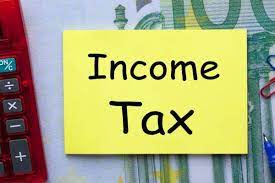Understanding Tax Implications on Interest and Enhanced Compensation: A Legal Analysis.
27 Nov, 2023
13920 View
- The recent appeal filed by the assessee against the order of the ld. NFAC/CIT(A), Delhi dated 30.05.2022 has sparked a discussion on the taxation of interest/enhanced compensation, citing several judicial references and precedents that bear significance.
- The central contention revolves around the taxability of interest received under Section 28 of the Land Acquisition Act, particularly concerning delayed compensation for compulsory acquisition of agricultural land. This matter has seen substantial deliberation in various legal spheres and has garnered attention in recent judicial pronouncements.
Judicial Precedents and Their Impact
- The appeal draws attention to pivotal judgments, notably including those of the Hon’ble Supreme Court in cases such as CIT vs. Ghanashyam (HUF) [2009], CIT vs. Govindbhai Mamaiya [2014], and UOI vs. Hari Singh [2017]. These cases have set benchmarks in determining the taxability of interest/enhanced compensation received under the Land Acquisition Act.
- Moreover, a detailed reference is made to a specific order by the Tribunal in the case of Smt Ramesh Bai vs. ITO, Bhiwani (ITA no. 4193 to 4195/Del/2019). This case presents a comprehensive analysis of whether interest received under Section 28 of the Land Acquisition Act, pertaining to delayed compensation for agricultural land acquisition, should be treated as taxable income from other sources.
Legal Analysis and Rationale
- The crux of the matter lies in whether such interest forms a part of enhanced compensation and thus falls under the exemption provided by Section 10(37) of the Income Tax Act. The argument presented in favor of the assessee draws heavily upon the decision in Jagmal Singh Vs. Income Tax Officer, emphasizing that interest under Section 28 of the Land Acquisition Act should be considered as part of enhanced compensation, hence not liable for income tax.
- The discussion extends to the interpretation of various court decisions, notably the Hon’ble Gujarat High Court’s ruling in Movaliya Bhikhubhai Balabhai v. Income-tax OfficerTDS-1-Surat [2016]. This case highlights the characterization of interest under Section 28 as an accretion to compensation and therefore not within the ambit of “income from other sources” under Section 56(2)(viii) and Section 145A(b) of the Income Tax Act.
Conclusion
- In light of the consistent legal interpretations and precedence established by the apex court and various high courts, the appeal argues that interest received under Section 28 of the Land Acquisition Act should be treated as part of enhanced compensation and consequently exempt from income tax liability.
- The appeal concludes that the factual matrix and the legal position being consistent with the precedents cited, warrant the allowance of the assessee’s appeal.
- This case underscores the complexities within tax laws and the need for meticulous examination of legal precedents to determine the taxability of specific financial transactions. It emphasizes the significance of judicial interpretations in shaping tax-related decisions, offering clarity and guidance to taxpayers and authorities alike.
Topic-Ashwani Kumar Versus Income Tax Officer
Court-ITAT-Delhi
Date-16/11/2023
Team Taxonation

Comment: